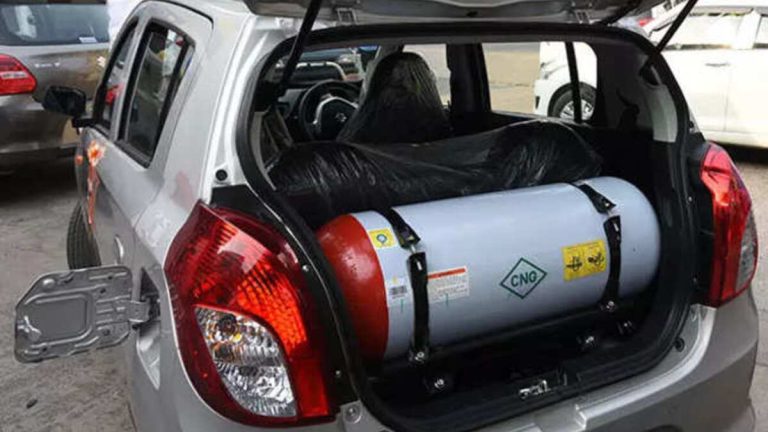The National Government has emphasized the significance of expanding Nigeria’s energy options to include Compressed Natural Gas (CNG), highlighting its potential to generate additional employment and wealth for its citizens.
The statement was made by the Director-General of the National Automotive Design and Development Council (NADDC), My Joseph Osanipin at a Critique/Validation Workshop in Keffi on Monday,
According to the Nairametrics, the workshop was held to review and validate the newly developed National Occupational Standard (NOS), which focuses on the conversion, calibration, and upkeep of CNG/autogas-powered and electric vehicles in Nigeria.
Osanipin stated that the creation of the NOS was a collaborative endeavor involving all key stakeholders in the Automotive industry
Increased employment prospects
He spoke about the initiative serving as a strategy for diversifying Nigeria’s economy, promising increased employment prospects and wealth generation for its people.
- “When fully operational, the framework will place out-of-school children, working adults, graduates and apprentices at both formal and non-formal settings with skill acquisition and competency.
- “I therefore urge all of you to give this national assignment the best it deserves.”
- “NADDC is promoting the development of CNG/Auto Gas-Powered and Electric vehicles in Nigeria and creating the enabling environment for them to thrive.
- “This will reduce the dependency on petrol and diesel and mitigate environmental concerns (greenhouse gas emissions)”.
Speaking further, he said:
- “It is expected that the document that will come out of these efforts will be of international standards and help to drive the auto sector to its well-deserved position globally.
Ensuring skills development in CNG
Highlighting the significance of CNG, the director-general underscored the necessity for training, which he noted could not be achieved in the absence of a specific guideline or manual.
Regarding preparedness, he mentioned that diverse stakeholders from various sectors had been engaged, each set to fulfill distinct roles.
These stakeholders encompass educators, technicians, individuals currently engaged in CNG conversions, the Industrial Training Fund (ITF), the Standards Organisation of Nigeria (SON), and others who have collaborated to create this manual.
- “The development of the NOS you are about to discuss is a testament to the efforts the council is making to ensure skills development and upgrade in the automotive sector.
- “The key areas of CNG training has to do with the conversion, storage, transportation, calibration, and maintenance among others.
- “We need to conduct training and for you to conduct the training, there must be a manual for those training to be done,” he said.
- “And by the time we develop this manual, it will put the artisans through the necessary training.
- “It is a competency based training that will ensure the real technical know-how is transfered to the artisan so that we will be able to develop technical aspect of the CNG.
- “No country had everything going for them at once, we have to train people to acquire the knowledge and so, this is the process we have started now.

